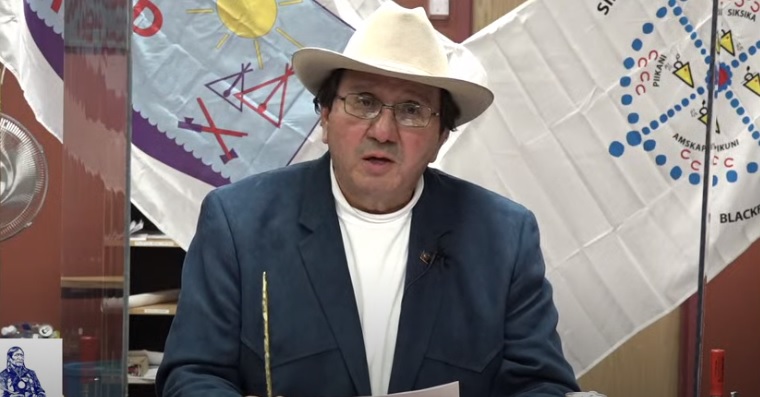“We will not accept half measures or temporary solutions” is the message Blood Tribe Chief Roy Fox says is being sent by the Assembly of First Nations rejecting the proposed child welfare reform deal.
Fox says the proposed $47.8-billion agreement ignored the harm that was caused by children being removed from their homes and having their connections cut to their people and traditions. In a statement, the tribe leader continues by saying the agreement “undermines our authority over decisions affecting our people.”
“Control over child and family services is essential to protecting our children and upholding our Nation’s authority,” he says. “The proposal seeks to transfer oversight to entities that do not represent Kainaiwa, the Blackfoot Confederacy, or other Treaty First Nations in Alberta, disregarding our inherent rights in favour of disconnected external bodies.”
The proposed agreement is said to have focused on the country’s underfunding of on-reserve child welfare services and is said to have been made between the federal government, Chiefs of Ontario, Nisnawbe Aski Nation and Assembly of First Nations. However last week, 267 out of 414 chiefs voted against the deal. However, in 90 days the group will vote on the resolution again after having more time to look over the agreement.
According to a release from the Federal Minister of Indigenous Services, Patty Hajdu’s office, parts of the agreement are already in place because they are built on the commitments that the government made in the 2021 Agreement-in-Principle. This is said to include the $810 million that was invested in First Nations and First Nations child and family services agencies earlier this year to support new programs in information technology, results, poverty, emergencies, and remoteness, investing in First Nation Representative Services and investing in post-majority support services for those up to the age of 26-years-old.
According to the release from the minister’s office, “Canada has made every effort to reach a fair, equitable and comprehensive resolution outside of litigation, including securing unprecedented levels of funding.” However, Chief Fox says he welcomes the rejection on behalf of the Blood Tribe because “Canada failed to seek our consent, violating its duty to meaningfully consult.”
“As advocates like Dr. Cindy Blackstock have emphasized, funding must be sufficient, long-term, and guaranteed. The tribunal orders addressing Canada’s discriminatory actions remain in place, and until we see real, lasting change, we will hold all levels of government accountable.”
He adds the Blood Tribe is going forward with the Kainaiwa Family Preservation Code, which is guided by the nation’s traditional laws, values, and ways of knowing and gives community members the power to care for their children.
“Our children carry the heart of our people, and it is our collective responsibility to support and uphold them in nurturing their connections to family, traditions, identity, and their own sense of purpose.”
According to the minister’s office, officials will be reviewing the resolutions and determining the next steps. They will continue to work to respond to the 2016 Canadian Human Rights Tribunal’s orders to improve the lives and outcomes of First Nations children and families living on reserve by reducing the number of First Nations children in care and ensuring they can stay connected to not only their families, but their communities and cultures.







